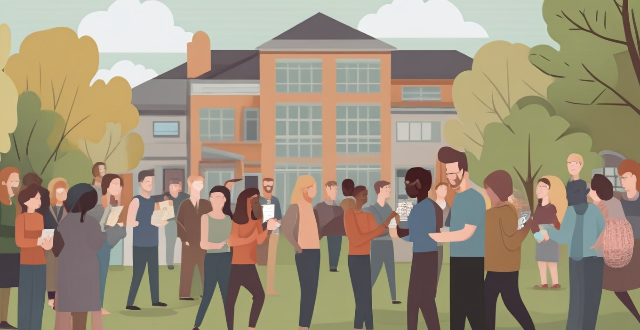Social media serves as a powerful tool for political activism by enabling activists to raise awareness, mobilize support, organize events, build networks, and hold leaders accountable. Key strategies include sharing information, visual storytelling, hashtag campaigns, online petitions, event promotion, coordinated actions, connecting with allies, finding influencers, real-time response, and crowdsourced investigations. Responsible use of these tools is crucial for maintaining constructive dialogue and avoiding online harassment or misinformation.

Social Media as a Tool for Political Activism
Social media has become an integral part of modern political activism. It offers a platform where individuals can voice their opinions, share information, and mobilize support for various causes. Here's how social media can be effectively used for political activism:
Raising Awareness and Educating the Public
- Sharing Information: Social media platforms allow activists to disseminate information quickly and efficiently. This can include breaking news, educational content, or personal stories that highlight specific issues.
- Visual Storytelling: Utilizing images, videos, and infographics can help convey complex messages in an easily digestible format, making it more likely for users to engage with the content.
Mobilizing Support and Engaging Communities
- Hashtag Campaigns: Creating a unified hashtag can help centralize discussions around a particular topic, making it easier for people to find related content and join the conversation.
- Online Petitions: Platforms like Change.org have made it simple to start online petitions, which can then be shared across social media to gather signatures and show support for a cause.
Organizing Events and Actions
- Event Promotion: Social media is an ideal tool for promoting events such as marches, rallies, or vigils. It allows organizers to reach a large audience and provide updates in real-time.
- Coordinated Actions: From flash mobs to digital sit-ins, social media enables activists to coordinate actions that require precise timing and widespread participation.
Building Networks and Alliances
- Connecting with Allies: Social media facilitates connections between different groups working on similar issues, fostering collaboration and strengthening the overall movement.
- Finding Influencers: Identifying and engaging with influencers who share your values can help amplify your message and reach new audiences.
Holding Leaders Accountable
- Real-Time Response: Social media provides a platform for immediate reactions to political events or statements, allowing activists to hold leaders accountable for their actions.
- Crowdsourced Investigations: In cases where official channels may be lacking transparency, social media can be used to crowdsource information and conduct informal investigations.
By leveraging these strategies, activists can harness the power of social media to advance their political goals and create meaningful change. However, it's important to use these tools responsibly and maintain a focus on constructive dialogue rather than resorting to online harassment or misinformation.